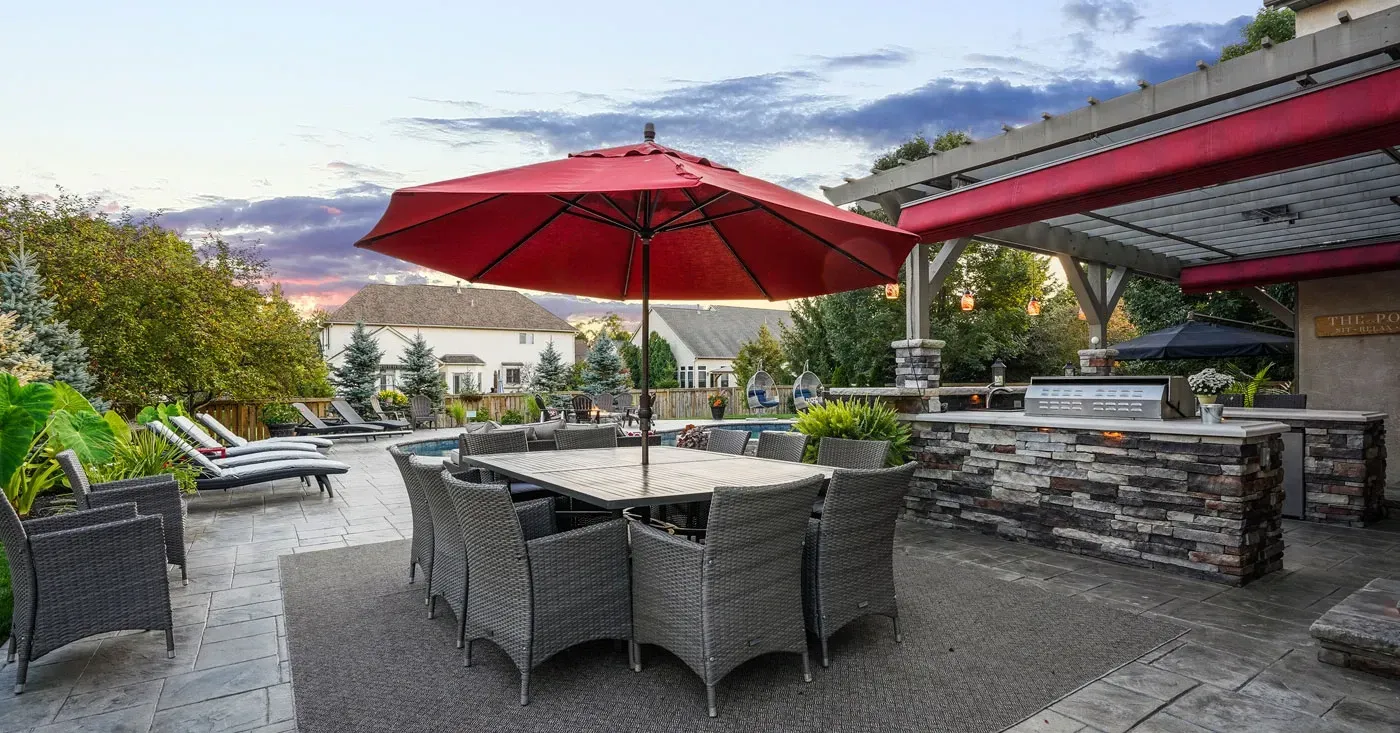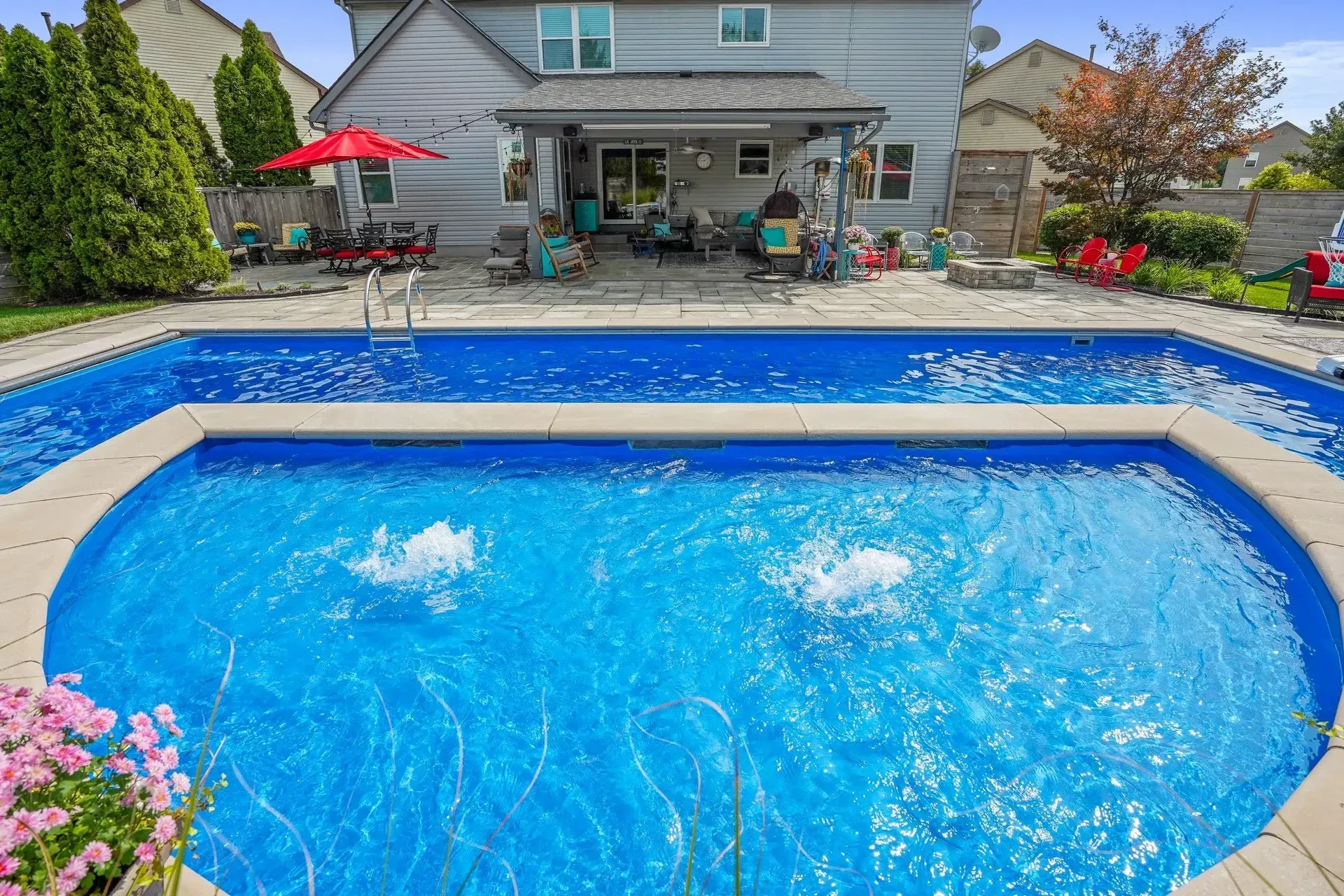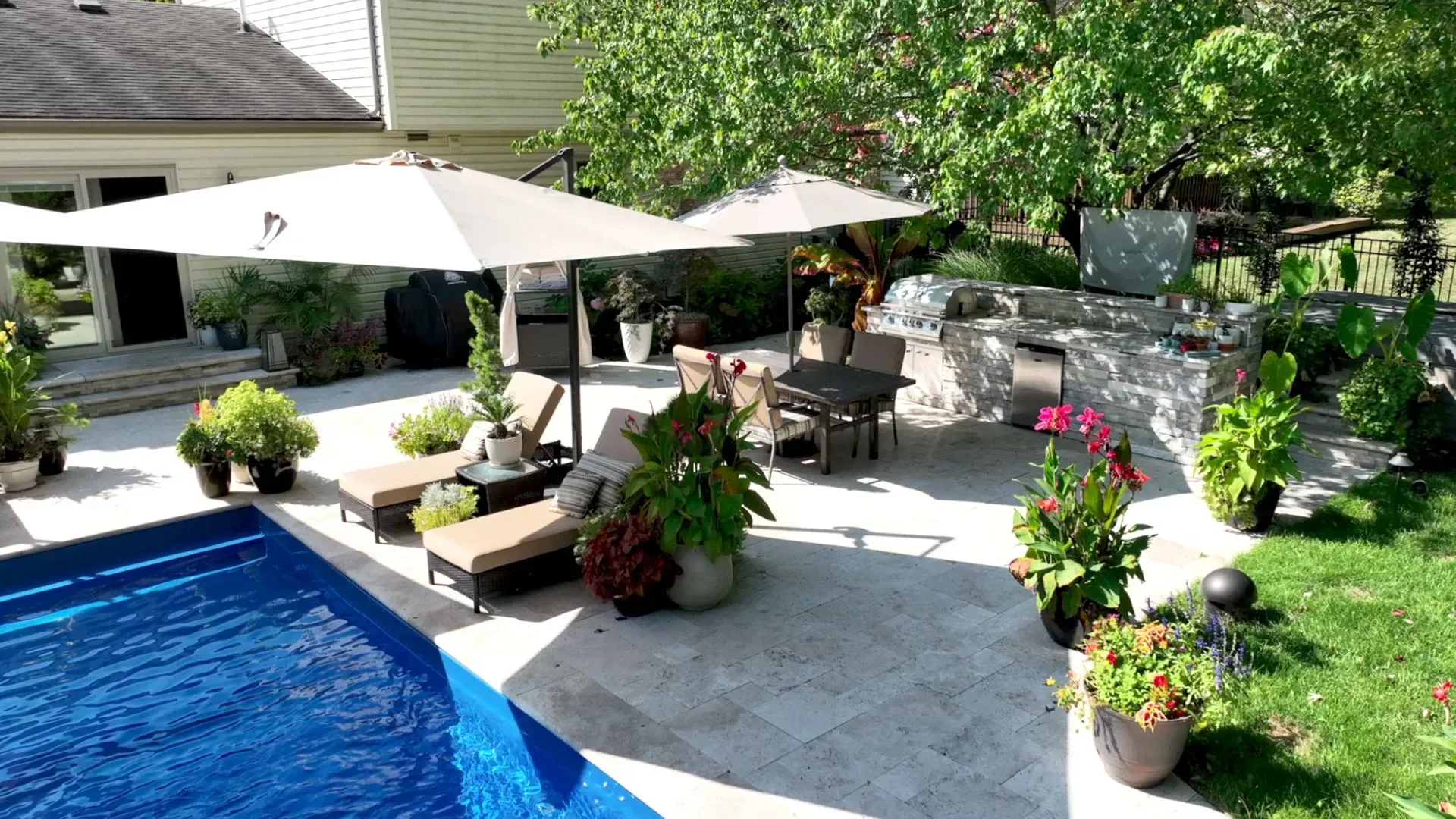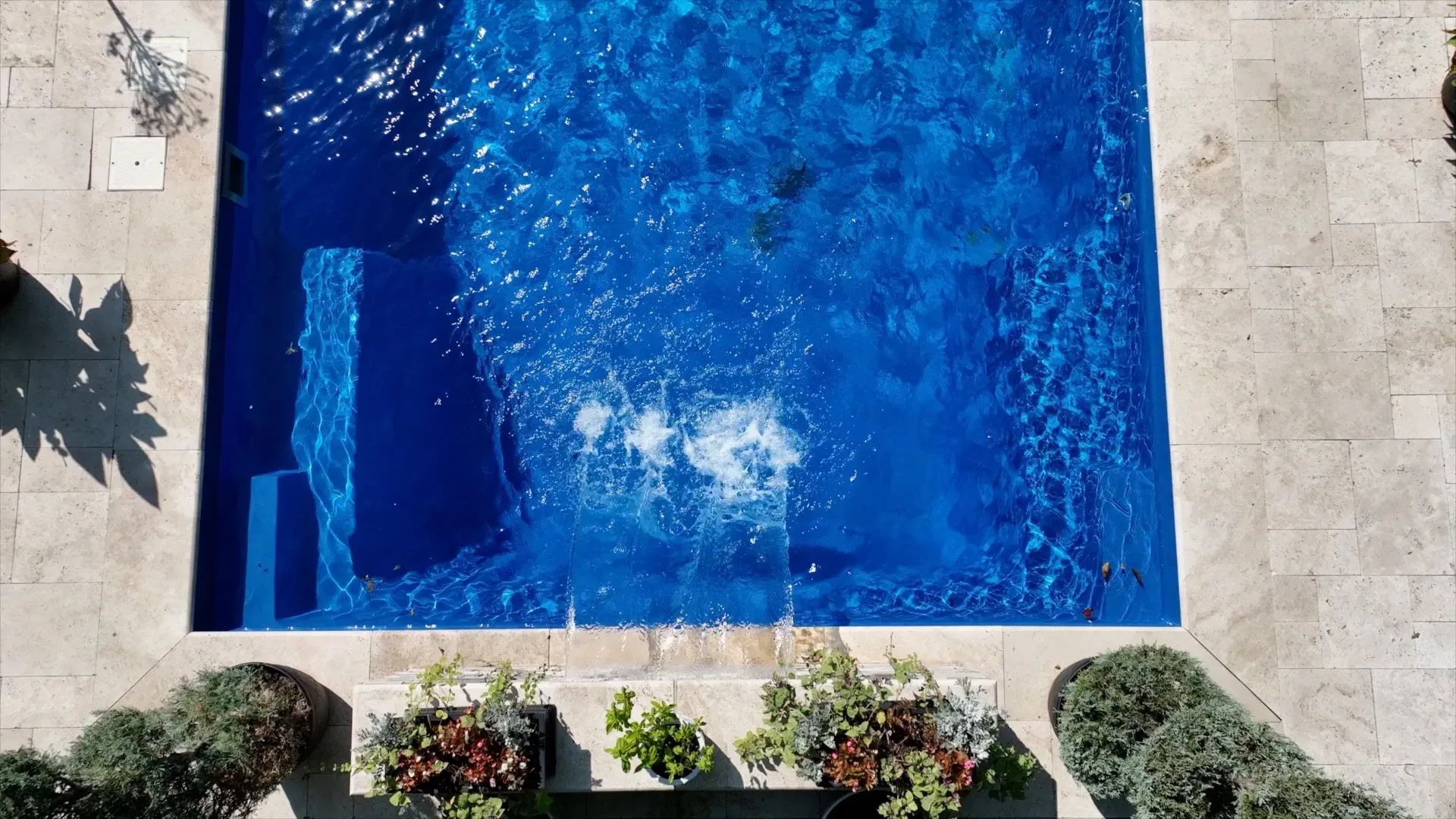What is Stamped Concrete?

If you are considering changing the way your landscaping and hardscaping looks and feels, you have a lot of options. Many Ohio property owners are choosing stamped concrete as an alternative to pavers or stones. But what is stamped concrete?
As the name implies, stamped concrete is concrete that is stamped with a pattern. It might look like brick, stone, tile, slate, or wood. The options are virtually limitless. At Omni Pools & Scapes, we can use stamped concrete to accentuate your walkway, sidewalk, patio, pool deck, or driveway.
The outdoor living space is becoming increasingly important as people recognize the benefits of spending some time outside and away from electronics. A stamped concrete hardscape can give you an economical and attractive place to set up your patio table and chairs or to go for a meandering walk around your property.
Whether stamped concrete is the right choice for you is an individual decision. Your Omni Pools & Scapes landscaping professional can talk you through all of the options so you can make a completely informed choice. Contact us for a free consultation to discuss your residential or commercial landscaping project.
How Much Does Stamped Concrete Cost?
When you are looking for a hardscaping material, one of your concerns is likely to be your budget. The scope of your project will determine the cost; the more hardscaping you need, the more you will likely need to invest in your outdoor renovations. For the most part, stamped concrete costs more than plain concrete but less than stone or brick pavers. This is not an exact answer; in some situations, stamped concrete might be more or less expensive than comparable materials.
There are different types of stamped concrete. If you have one stamp pattern being used and just one color, it will be more economical than if you wanted a more complex stamp pattern and several different colors. Your landscaper can tell you the different price points of the various patterns available.
The best way to find out how much your project will cost is to contact Omni Pools & Scapes for a free consultation. Without seeing how large your property is, the slope you are working with, existing landscaping, and so on, it would be nearly impossible to give you an accurate price quote.
Does Stamped Concrete Require a Lot of Maintenance?
The good news about stamped concrete patios is that they don’t require much maintenance. This is a consideration to keep in mind if you are on a budget or anticipate being on a budget in the future. Stamped concrete is just as durable as plain concrete so it will hold up well for years.
To keep your stamped concrete hardscaping looking good, you should sweep it regularly and wash it occasionally with a push broom. You can also pressure-wash it if you’d rather do that. Your outdoor flooring will be sealed when it is installed, so you can ask your installer how often you should have it resealed. The first winter after you have the concrete sealed, it is best to avoid de-icing salts if possible, as this can cause you to have to reseal it sooner than you otherwise would.
What Are the Benefits of Stamped Concrete?
Installing any type of hardscaping outside your home or commercial property offers several benefits, and using stamped concrete has some benefits of its own. Here are some reasons to consider having this type of hardscaping installed:
- Stamped concrete boosts your curb appeal at a lower cost than stones would cost. If you are trying to mimic a slate or stone patio or walkway, you will probably find that stamped concrete is less expensive and still has the same visual appeal.
- Stamped concrete can raise the value of your home. When it comes time to put your house on the market, you might find that customized hardscaping helps you to sell it more quickly and possibly even for a higher price. Homebuyers like to see upgrades and many look for features that make outdoor entertaining easier.
- You won’t have to pull weeds between the stones. One big advantage to having stamped concrete installed rather than paver stones is that weeds won’t pop through.
- Stamped concrete lasts a long time. You will not have to replace your hardscaping for many years, which makes it an economical choice over the long term.
How Can I Decide if Stamped Concrete is Right for My Project?
Omni Pools & Scapes offers a free consultation to property owners in the greater Columbus, Dayton, and Cincinnati areas. One of our experienced landscapers can talk to you about your project and help you decide whether stamped concrete is the right material for your home or commercial property. Contact us today to learn more about the various materials we use and to schedule your free consultation appointment.
OMNI LEARNING CENTER
RECENT POSTS




